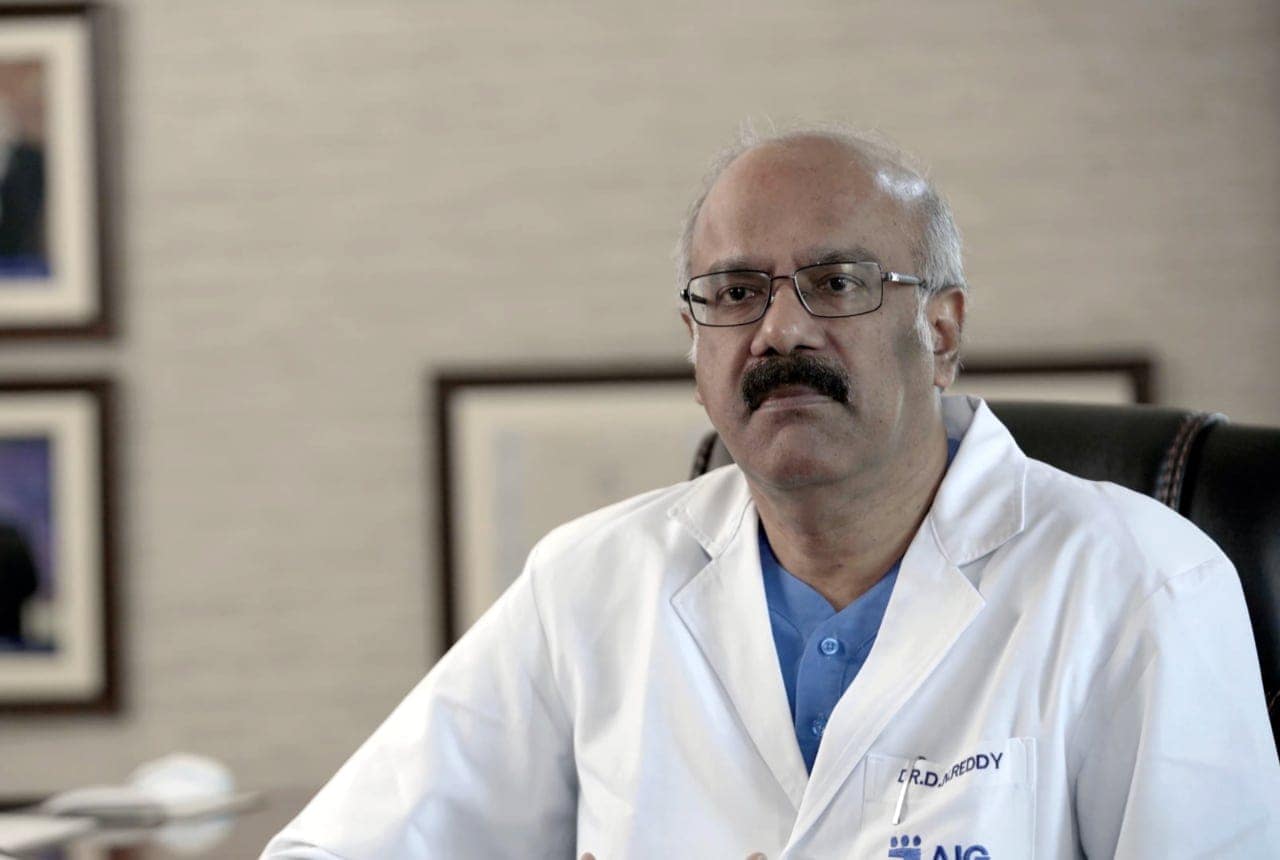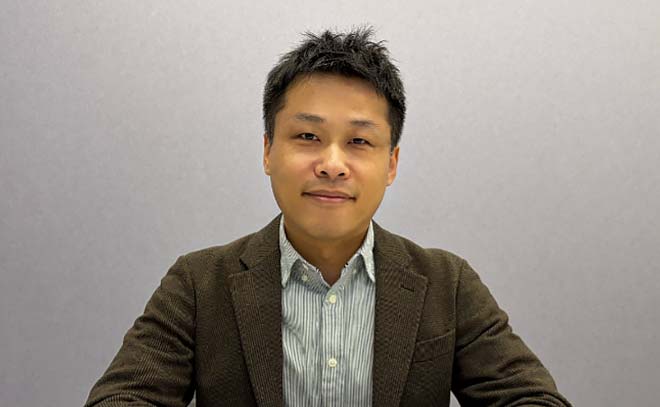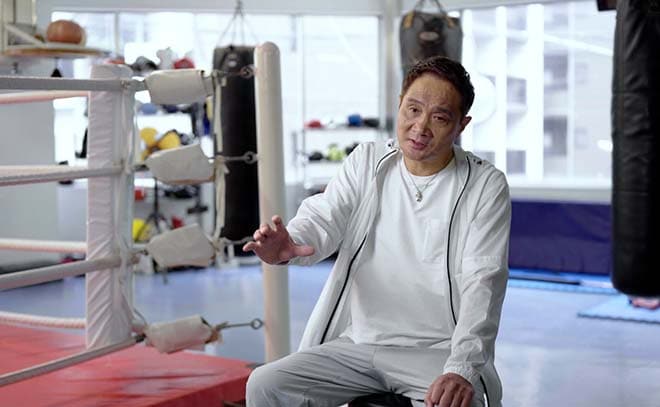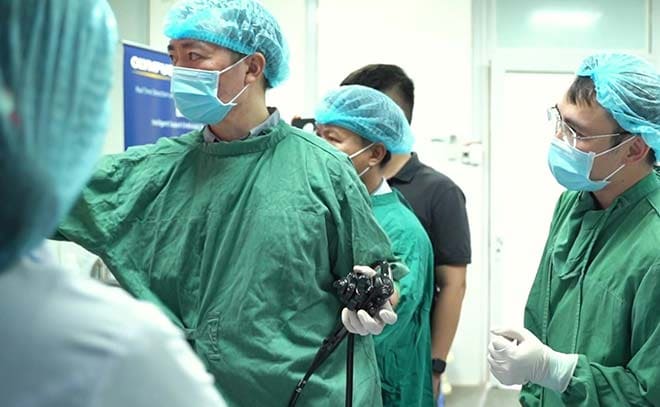A partnership to improve lives through gastrointestinal endoscopy advancement in India
Influenced by his grandfather and father, both physicians, to pursue a career in medicine, Dr. Nageshwar Reddy, President of the Asian Institute of Gastroenterology (AIG), a leading medical institution in Hyderabad, India, specialized in gastroenterology and endoscopy during his years of study. His interest in therapeutic endoscopy was piqued after he witnessed a patient's life being saved by an endoscopic procedure during his fellowship.
Working in partnership to improve healthcare for people across different socio-economic backgrounds, Dr. Reddy's organization, AIG, was formed under the philosophy that patients everywhere should receive the best available in medical technology, infrastructure, and talent, equal to that seen in developed countries. However, there are still disparities, and Dr. Reddy cautions that many of the people living in rural areas and semi-urban areas still don't have access to the best available care.
"The survival rate of cancer patients in emerging countries is lower than in developed countries, and the five-year survival rate of colon cancer patients in India is about 30%*1, whilst in Japan it is 70%*2. Early detection and early treatment through regular checkups are important. However, there are few facilities in India that provide cancer screening services, and there are not enough doctors and opportunities for training."
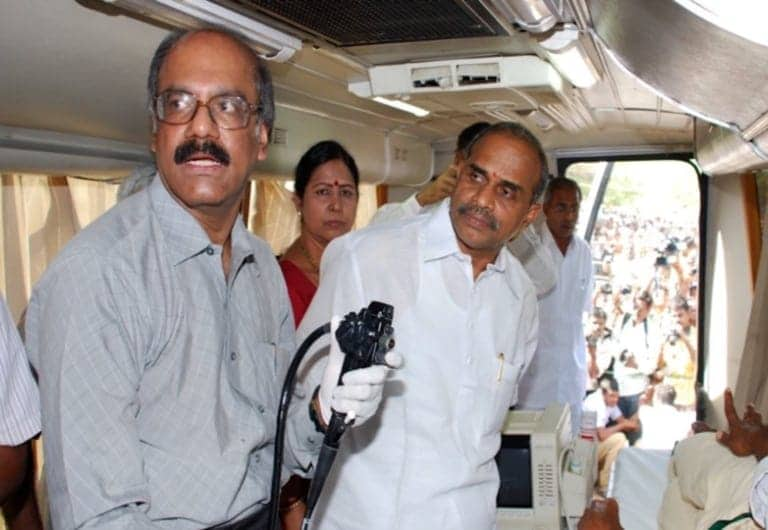
Dr. Reddy and AIG set about starting endoscopy mobile units with the main objective of elevating the standard of care for underprivileged people in hard-to-reach communities. Staying true to its purpose of "Making people's lives healthier, safer and more fulfilling," Olympus supported the units with the necessary medical equipment. These endoscopy mobile units have been able to bring endoscopy, colonoscopy, and basic liver function tests that uncover life-threatening conditions to the rural population potentially leading to life-saving treatment for those most ill. One particular example saw the team encounter a woman who was coughing blood during pregnancy due to a tear in the lower esophagus. She was administered an endoscopic clipping immediately stopping the outflow of blood, and ultimately saving her life.
"Dramatic change in gastrointestinal endoscopy" from diagnostic to therapeutic procedure
"During the last 30 years, there has been a dramatic change in gastrointestinal endoscopy, which evolved from a purely diagnostic procedure to a major therapeutic procedure. It has changed how we treat patients with gastrointestinal disease."
Dr. Reddy observes that in the past, many gastrointestinal diseases were treated by drug therapy and invasive surgery. Gastrointestinal endoscopy has since made a huge difference to patients' lives by enabling doctors to detect diseases including cancer in its early stages and making it easier to resect. He points to the possibility that even patients who are diagnosed with early-stage gastric cancer can live for 10 years or longer, while those who have severe conditions such as cholangitis (inflammation of the bile duct system), can be cured through the deployment of endoscopic procedures.
Working with Olympus to train the next generation
The Indian healthcare sector is one of India's largest employers, (it employs a total of 4.7 million people) however, there are relatively few endoscopists. India has 0.5 endoscopists per 100,000 people, while in Japan the figure is 15.5 endoscopists per 100,000 people (as of 2020), showing the need for additional highly trained professionals.*3
Speaking about AIG's partnership with Olympus, Dr. Reddy outlines how Olympus has played a role in helping India move forward with its healthcare reforms, but also building a state-of-the-art facility that has trained over 500 endoscopists.
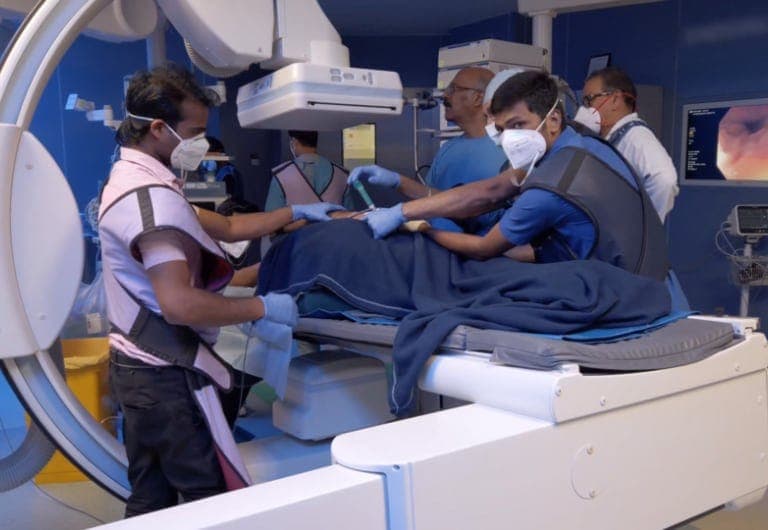
"Olympus collaborates with us [AIG] and Indian academic societies to support endoscopy training more than 150 times a year and provides prompt medical equipment repair services. In particular, the training and development of endoscopists is of great significance. It helps support the health and lives of the people in India. Olympus provides us with added value beyond just products."
Despite the Indian government's increased healthcare spend from 2020 through 2022, Dr. Reddy's hopes for the future lie in overcoming the biggest hurdle of all — namely making healthcare accessible to all.
"India is experiencing a rapid growth in population and economy. Lifestyle-related diseases such as cancer are on the rise. However, with partners such as Olympus at the helm, committed to continuing to do its utmost to realize the health, peace of mind, and spiritual richness of the people of India, I do believe a brighter future awaits."
*1 World Health Organization. (n.d.). GCO - SURVCAN. Retrieved from International Agency for Research on Cancer: https://gco.iarc.fr/survival/survcan/dataviz/table?survival=5&populations=0&cancers=90
*2 National Cancer Center Japan. (2023, 03 16). In-hospital Cancer Registry Survival Rate Aggregation. Retrieved from ganjoho.jp: https://ganjoho.jp/public/qa_links/report/hosp_c/hosp_c_reg_surv/index.html
*3 Japanese Medical Specialty Board. (2021). Japanese Medical Specialty System Outline. Retrieved March 20, 2023, from https://jmsb.or.jp/wp-content/uploads/2022/04/gaiho_2021.pdf



